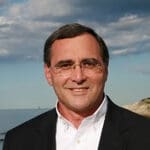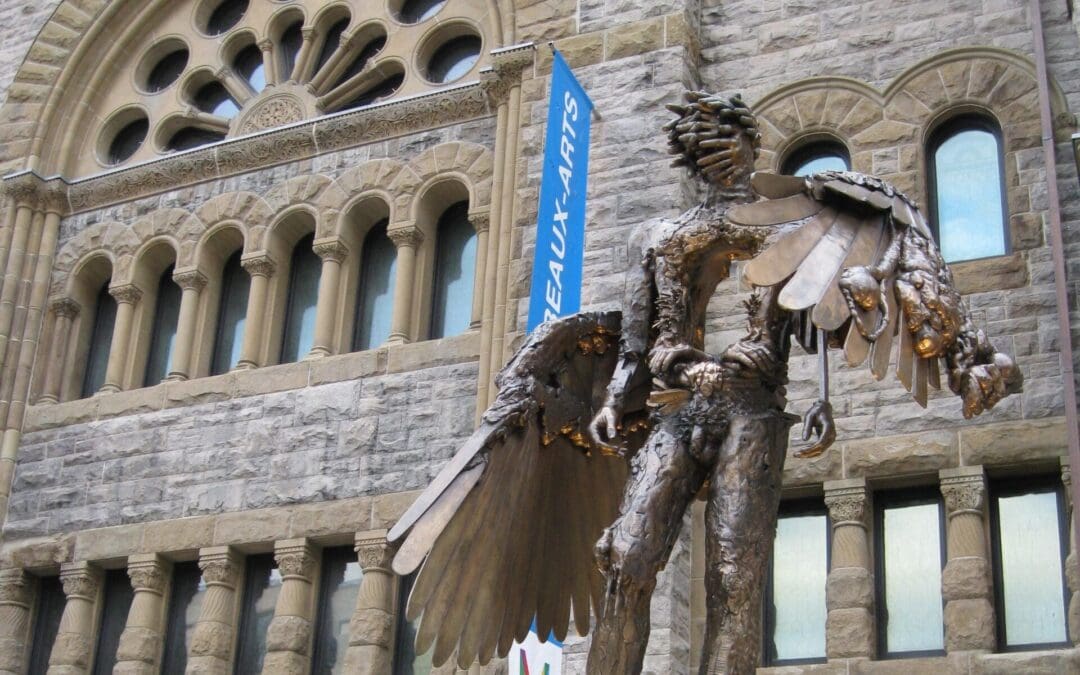Inspired by the interviews in the Paris Review and Bomb magazine, “The Questions” in Sports Illustrated, and the regular interviews on the blogs of Tom Peters and Guy Kawasaki, Comment has asked a diverse group of mentors for their stories.
Comment: How would you explain what you do to an interested nine-year-old child?
John Seel: My resume says that I am a “moral entrepreneur, educational reformer, and cultural change agent.” It sounds pretty complicated and grandiose when stated this way, but it’s a good summary of what I have done in my life. I’m a visionary: rarely satisfied with what is, always longing for what can be. I organize people and money around ideas that make the world a better place. My passion is cultural renewal—helping to build a world that is creative, life affirming, and God honoring. I’ve had many jobs in my career—a futurist, public policy administrator, teacher, coach, college administrator, headmaster, viral marketing consultant, and writer. But a cultural renewal entrepreneur perhaps best describes my calling.

Comment: What first drew you to this work?
JS: My interest in culture and cultural change stems from my experience of having grown up in South Korea, the son of medical missionaries. Francis Schaeffer opened my eyes to a world of ideas, Peter Berger to their social implications, and Dallas Willard to their heart expressions. My father had the greatest influence on my life. He was one of those mythic missionary legends of a bygone era. His selfless devotion to Christ left an indelible mark on the lives of many, including me, his namesake. His motto was, “No man is great unless he serves something larger than himself.”
Comment: As a novice, what were your most valuable learning experiences?
JS: My most valuable learning experiences have come from hard times. There is more to be learned from a dropped pass and failed exam than from cheering crowds or academic honors. I’ve had both: an off sides penalty my senior year in high school that cost my team the championship and a failed doctoral comprehensive exam that put my graduate studies in jeopardy. Only in the storm does one learn the breadth of God’s love and his faithfulness. George Dawson writes, “When the storm is loud, and the night is dark, and the soul sad, and the heart oppressed; then, as weary travelers, may we look to Thee: and beholding the light of Thy love, may it bear us on, until we learn to sing Thy song in the night.” Live long enough—as I have—and life will bring difficulty: the death of a child, the collapse of a marriage, the loss of a job, the betrayal of a friend, the erosion of health, a parent’s loss of memory, a prodigal child. Life has its litany of losses. My wife, Kathryn, says, “Never trust anyone who doesn’t walk with a limp.” I’ve learned the most through failure and loss. Today I walk with a limp.
Comment: What is the best advice you’ve ever been given?
JS: If you take time to listen, God will guide.

Comment: From what sources do you draw inspiration for your work?
JS: In my personal journal I have this quote from Dallas Willard, which I read each morning, “Spiritual persons are not those who engage in certain ‘spiritual practices,’ but those who draw their life from a conversational relationship with God. Thus they do not live their lives merely in terms of the human order in the visible world. They have ‘a life beyond.'” I try to draw my strength and inspiration from this ongoing conversation. I also read biographies of great men and women. I feel that we often set our sights too low as to what God can do through a person who is abandoned to his purposes.
Comment: What rituals and habits structure your workday?
JS: My day always starts with a cup of coffee with my wife. We are unabashed Starbuck’s fanatics. (Kathryn says that it’s biblical for the man to make the coffee in that there is an entire book of the Bible devoted to the topic, “He Brews.”) The day starts with a devotional reading of Scripture, listening prayer, and journaling and ends with an hour at the gym. If I’m not working at home, the day is punctuated in the middle with a call to my wife. I feel it is important for us to try to stay connected throughout the day.

Comment: What are your favorite tools?
JS: My 17-inch PowerBook G4 Apple laptop—and anything else Apple offers. I have also become fairly attached to the Uni-ball Gel Impact 1.0mm pen.
Comment: Tell us about a project that delighted you.
JS: I coached two oarsmen from a small Christian school to the US Rowing National Youth Championship. It was a life changing experience for all who were involved. It was also an honor to be on the outreach team behind the film, Amazing Grace: The Story of William Wilberforce.
Comment: How do you plan your work?
JS: I do not work for one company; instead I’m involved in a number of “WOW Projects”—to use Tom Peters’ term—projects that really matter and are personally inspiring. This allows me to work with an amazing group of people in film, education, public policy and ministry across the nation. I manage a cultural renewal portfolio, which involves a wide range of projects and opportunities. I live by deadlines whether it’s giving speeches, writing articles, drafting proposals, or reading scripts. Each project has its own timeline; each has detailed benchmarks. But I try to be flexible, jumping at the unexpected opportunity, networking aggressively with all who share my passion for making a difference in our generation.

Comment: How does your work connect to other aspects of your life?
JS: The closer one’s work is to one’s calling—the practical expression of one’s identity in service to Christ and his kingdom—the more the lines between work and non-work get blurred. What I do is largely who I am, so it connects easily to other aspects of my life. To maintain balance, it is necessary to live within a rhythm of rest and work—the Sabbath precedes the week just as night the day. Life is a marathon, not a sprint and I try to live it accordingly. But as I have gotten older, using time wisely has become much more important.


